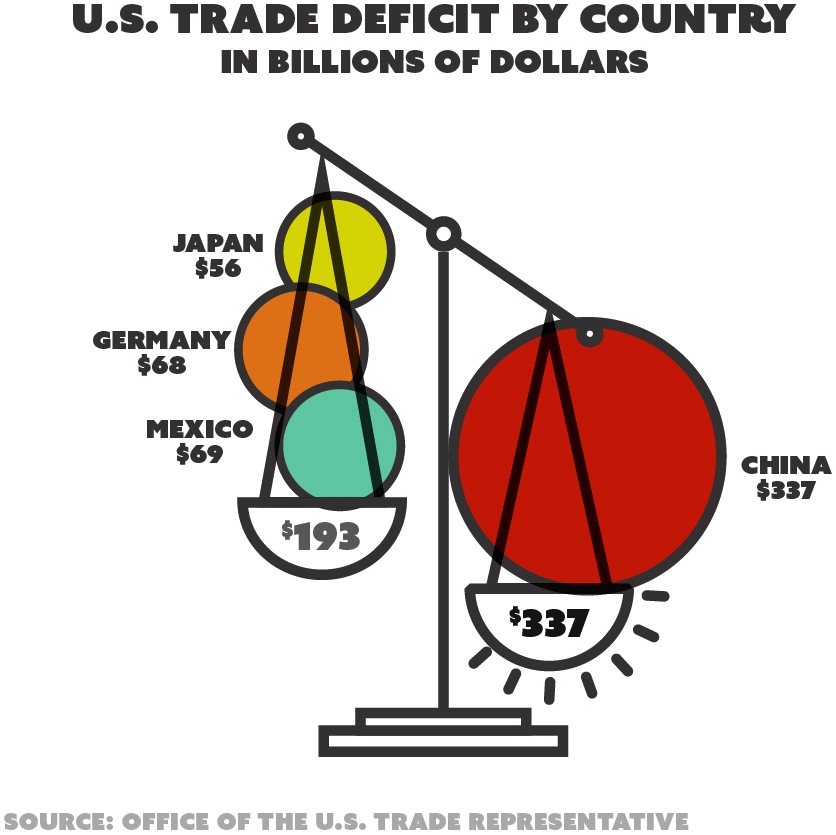Throughout history, as technology advanced, the world became increasingly interconnected. Not only are people able to communicate with others halfway around the world, but innovations in transportation allow goods to be shipped to anywhere on the planet, unlocking international trade and increasing global prosperity. However, this capability is not without its consequences, a major one being an increased number of conflicts.
In January 2018, the trade war between the United States and China, the two largest countries by GDP, kicked off when the Trump administration placed tariffs on imported solar panels and washing machines, both of which China exports in massive quantities. Two months later, Trump imposed a 25% tariff on steel and a 10% tariff on aluminum. In a statement released by the White House, the President justified the tariffs placed on billions of dollars’ worth of Chinese goods using Section 301 of the Trade Act of 1974, citing China’s theft of intellectual property and technology and unfair trade practices. On April 1, China responded by enacting tariffs on 128 American products, including pork products, fruit, and wine.
As the conflict escalated and trade talks fail to yield a resolution, people disagreed on the benefits of the trade war and the optimal way to end it. Unlike most modern-day issues, the matter of the trade war with China is not one where people are solely divided along party lines. The supporters of the trade war, led by President Trump, believe the United States should continue its tough approach levying tariffs until a favorable trade deal is reached, while its opposition believes that the war should be ended immediately and that the two superpowers should accomplish their trade goals through negotiations and mutual policy reform.
The trade war is an economic conflict between the United States and China that has major repercussions on everyday life. The future of international relations and the global economy is greatly dependent upon its outcome.
Sources:
https://www.cnbc.com/2019/03/01/the-timeline-of-trump-china-tariffs-and-trade-war.html
https://www.whitehouse.gov/briefings-statements/statement-president-donald-j-trump-additional-proposed-section-301-remedies/
http://fortune.com/2018/04/02/china-tariffs-128-us-products/


No comments:
Post a Comment